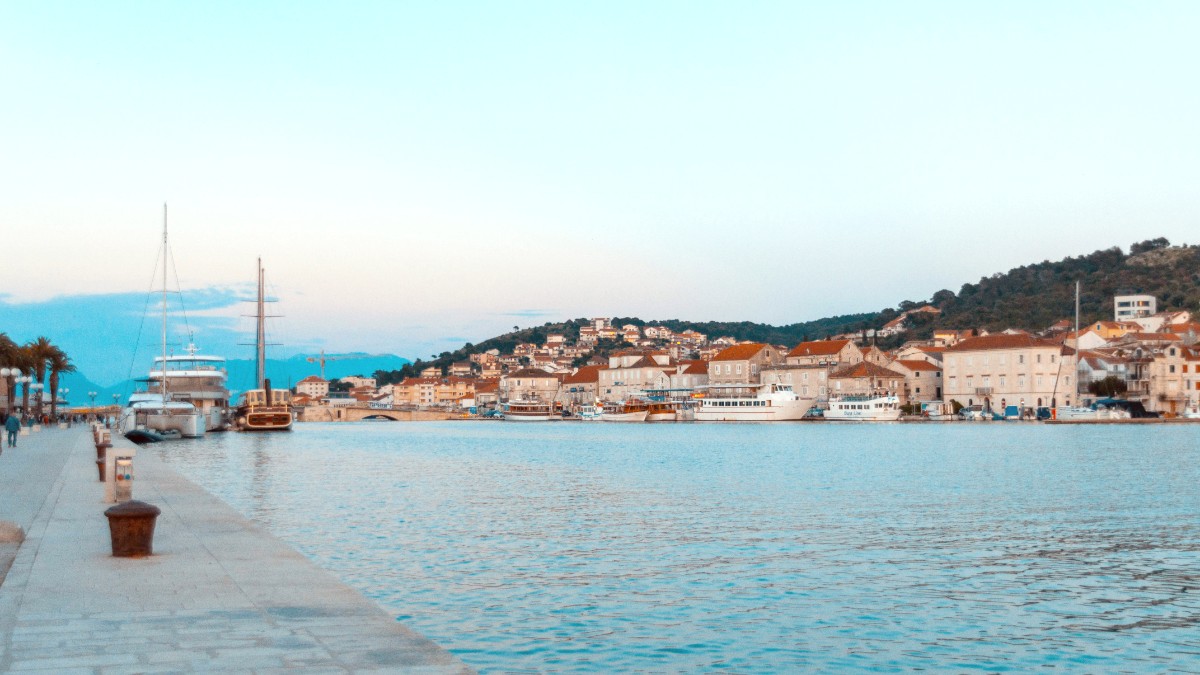
Dalmatia, Croatia
Split Airport (SPU), also known as Resnik Airport, is the closest and main airport for Trogir. It is approximately 6 kilometers (about 3.7 miles) from Trogir city center. Zadar Airport (ZAD) serves as an alternative, about 130 kilometers northwest.
Seasonal flight availability varies, with peak season (June-August) having the most frequent flights and highest prices. Split Airport facilities include duty-free shops, car rental agencies, cafes, and ATMs.
Book flights well in advance, ideally 3-6 months prior, to secure better rates, especially for high season. Compare prices with Dollar Flight Club and Skyscanner.
High season brings highest prices. Shoulder season (April-May, Sep-Oct) has moderate prices. Low season (Nov-Mar) has lowest prices, but reduced flight options.
Split Airport offers standard amenities like duty-free, car rental, cafes, restaurants, and ATMs. Free Wi-Fi is available throughout the terminal.
Trogir does not have direct train connections. The closest major train station is in Split. Train travel within Croatia is less developed and less comprehensive than bus travel.
Croatia is part of the Schengen Area. Border crossings from fellow Schengen countries are typically seamless. Crossings with non-Schengen neighbors (e.g., Bosnia and Herzegovina, Montenegro) involve standard passport control.
Croatia drives on the right-hand side of the road. This matches most of continental Europe.
Buses are the most common and efficient form of intercity transportation in Croatia. Trogir has a main bus station (Autobusni Kolodvor Trogir) conveniently located near the Old Town.
Car rental offers flexibility for exploring the region. To rent, a minimum age of 21 (sometimes 25 for larger vehicles) and a valid driving license (held for 1-2 years) are usual requirements.
Main roads and highways (autocesta) are generally well-maintained. Secondary roads can be narrower and winding.
Parking is difficult and often expensive in Trogir Old Town, which is a pedestrian-only zone. Parking lots are around the periphery of the island and on Čiovo island.
Sea travel mainly serves connections to islands from Split, rather than direct international arrivals in Trogir. Trogir has a small port for local boats and excursion vessels. It does not handle large international ferry lines or major cruise ship terminals directly.
For international ferry arrivals at Split port, standard Schengen border control procedures apply. Passengers undergo passport checks upon disembarking. There are no river transportation options relevant to tourists in Trogir.
Trogir's small port mainly serves local boat traffic and excursions, connecting to nearby coastal areas and islands.
For international ferry arrivals into Split, standard Schengen border procedures apply, including passport control for all passengers.
Croatia does not impose any specific exit fees or taxes for departing travelers, whether by air, bus, or ferry.
For flights departing from Split Airport, arriving early is prudent.
For ground and sea travel, allow sufficient time for boarding and formalities.
Split Airport offers cafes where you can grab a coffee or snack before your flight.
Duty-free shops are available for last-minute purchases, along with souvenir shops.
These amenities provide comfort and convenience before your journey, helping to streamline the departure process.